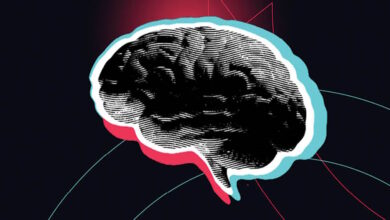Ending Racism Past and Present legal challenges
The twentieth century was a troubled time in human history, marked by wars, colonialism, genocide, famine, and unspeakable crimes. However as World War II came to a conclusion, human rights law began to move towards the centre of human and state thinking. The hallmark of this thinking was the establishment of the Universal Declaration of Human Rights. Before the United Nations came into being, the belief that everyone, by virtue of her or his humanity, was entitled to certain human rights was a fairly new concept. Notwithstanding gains realized since the Second World War, there is still a great deal of progress that needs to be made combat the persistent scourge of racism.
 Fifty-two years after the assassination of Dr. Martin Luther King Jr., who was the most visible spokesperson and leader of the modern Civil Rights Movement, Americans are once again engaged in a radical rethinking of their attitudes toward race. Dr. King believed that advancing civil rights can and should only be done through nonviolence and civil disobedience, It was inspired by his Christian beliefs and the nonviolent activism of Mahatma Gandhi.
Fifty-two years after the assassination of Dr. Martin Luther King Jr., who was the most visible spokesperson and leader of the modern Civil Rights Movement, Americans are once again engaged in a radical rethinking of their attitudes toward race. Dr. King believed that advancing civil rights can and should only be done through nonviolence and civil disobedience, It was inspired by his Christian beliefs and the nonviolent activism of Mahatma Gandhi.
Racism is an irrational prejudice, a product of ignorance and basically a hideous belief system based in fear. The issue of racism has been central to the political debate taking place at the moment in the United States, as well as here In Canada. We are fortunate to live in a country that has a strong legal system that we turn to in order to protect citizens against racial discrimination, but beyond this much more must be done if we are to effectively and enduringly combat racism. In Canada, there are strong human rights laws and systems to address discrimination. At the same time, we also have a legacy of racism.
Racism is the belief that groups of humans possess different behavioral traits corresponding to physical appearance and can be divided based on the superiority of one race over another. It is a stain upon humanity that even today it endures as it does in certain people.
Everyone in the world is entitled to the same fundamental human rights. These universal human rights include the right to live free from torture, the right to live free from slavery, the right to own property, and the right to equality and dignity, and to live free from all forms of discrimination.
Here at home we have the Canadian Human Rights Commission (CHRC) which was established in 1977 by the government of Canada to investigate and try to settle complaints of discrimination in employment and in the provision of services within federal jurisdiction. Canada’s human rights laws stem from the 1948 Universal Declaration of Human Rights.
In Ontario we have the Ontario Human Rights Commission (OHRC) which commenced in 1961 to administer the Ontario Human Rights Code. The OHRC’s mandate under the Code includes preventing discrimination through public education and public policy; and investigating situations where discriminatory behaviour persists.
The Ontario’s Human Rights Code defines racism as “a broader experience and practice than racial discrimination. Racism is a belief that one group is superior to others. Racism can be openly displayed in racial jokes, slurs or hate crimes. It can also be more deeply rooted in attitudes, values, and stereotypical beliefs”.
Under the Ontario’s Human Rights Code, every person has the right to be free from racial discrimination and harassment.
Government and organizations need to take proactive steps to make sure they are not taking part in, condoning, or allowing racial discrimination or harassment to continue. As we have witnessed in the United States, the issue of education, housing and health is key to economic empowerment of many members of the black community who justifiably feel that they are left out of the system. This is also the case with many members of First Nations communities.
In 1965, nations agreed to the International Convention on the Elimination of Racial Discrimination, seeking nothing less than the “elimination of all forms of racial discrimination,” unfortunately many countries looked outward to blame other nations rather than earnestly review their own faults.
Though many countries around the globe have passed laws related to race and discrimination, the first significant international human rights instrument developed by the United Nations was the Universal Declaration of Human Rights (UDHR), which was adopted in 1948. The UDHR recognizes that if people are to be treated with dignity, they require economic rights, social rights including education, and the rights to cultural and political participation and civil liberty. It further states that everyone is entitled to these rights “without distinction of any kind, such as race, colour, sex, language, religion, political or other opinion, national or social origin, property, birth or other status”.
The United Nations does not define “racism”; however, it does define “racial discrimination”. According to the 1965 UN International Convention on the Elimination of All Forms of Racial Discrimination, the term 11 racial discrimination” shall mean any distinction, exclusion, restriction, or preference based on race, colour, descent, or national or ethnic origin that has the purpose or effect of nullifying or impairing the recognition, enjoyment or exercise, on an equal footing, of human rights and fundamental freedoms in the political, economic, social, cultural or any other field of public life.
In their 1978 United Nations Educational, Scientific, and Cultural Organization (UNESCO) Declaration on Race and Racial Prejudice (Article 1), the United Nations states, “All human beings belong to a single species and are descended from a common stock. They are born equal in dignity and rights and all form an integral part of humanity.”
The United Nations definition of racial discrimination does not make any distinction between discrimination based on ethnicity and race, in part because the distinction between the two has been a matter of debate among academics, including anthropologists
In Norway, the word “race” has been removed from national laws concerning discrimination because the use of the phrase is considered problematic and unethical. The Norwegian Anti-Discrimination Act bans discrimination based on ethnicity, national origin, descent, and skin color.
Racism works by dehumanizing individuals and communities, not only by denying their inherent equality and dignity.
Having laws to eliminate racial discrimination is not enough, governments need to do more, racism, xenophobia, homophobia, and intolerance are problems prevalent in all societies. But every day, each one of us can stand up against racial prejudice and intolerant attitudes.
Governments have a leading role to play in eliminating systemic racism. Anti-racism strategies are needed to break down barriers to advance racial equity. I am a strong believer in education; it is education that is a main component of any strategy to eliminate racism and to improve the lives of all people who continue to suffer from racism in our contemporary world.
*Dr. Mario Silva, PhD (law), Distinguished Fellow, Law and Business Department, Ted Rogers School of Management, Ryerson University







Redes Sociais - Comentários